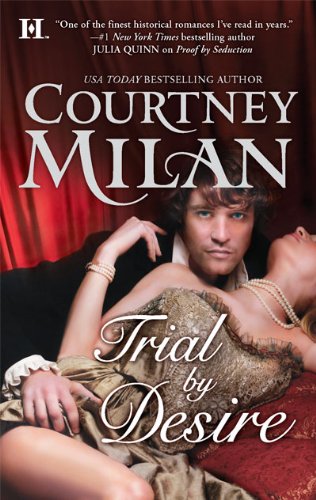I’ve been thinking about what happens after the Happily Ever After.
It’s a given for me that a romance must have a happy, satisfying ending: I wouldn’t want to read a book where the hero and heroine didn’t end up together (and if I don’t want them to get together, the book obviously isn’t working for me). But there’s a tendency, especially in series, to trot out the happy couple years after the fact, just to show them happy! and healthy! and fecund! and not having any kind of conflict whatsoever. They have nothing but beautiful, bright-eyed children, who brush their teeth without being told to do so.
Now, there are some things I would not do to a prior hero and heroine. I wouldn’t make them divorce. I wouldn’t make them separate. I wouldn’t kill one of them off. And I would never, ever, have one of them cheat. They all live to a ripe old age, and they are never, ever unhappy because of their marriage.
But part of what I am trying to do in writing a romance is not just to write about a couple who manages to solve whatever problem du jour (du livre?) that I conjure up. It’s to convince the reader that the couple has grown to the point where they are capable of solving all of the things that life throws at them. That they can face anything–financial downturns, difficult children, the death of parents, misguided siblings–so long as they do it together. I want you to believe that in the face of a world that is not always kind, fair, or good, that their life will be kind, fair, and good, because they have each other.
To me, that’s what real romance is about. Not the flowers or the chocolates or even the sex. It’s about knowing that the world will always be a better place because that person is by your side.
Trial by Desire is a book that focuses on Ned and Kate (who are the hero & heroine of the book). But Gareth and Jenny show up. And everything is not all sweetness and light in their life. They do have a problem. But that problem is one that they’ll face together. I worried when I wrote this. Was it violating some cardinal rule, to imply that my hero and heroine have worries after their marriage? Should they have had two sets of twins in the intervening years? Should their life read like an advertisement for a diamond commercial?
Ultimately, I decided that I was shortchanging Gareth and Jenny, if I implied that they were so weak as a couple that they could not handle a little stress in their life.
I’m thinking about this again, as I’m working on my fourth (fourth!) book, and have finally realized that the book has to intersect the life of my third-book-heroine in a way that will make her very, very unhappy. Anything else would be cheap.
Can I do that? Is it allowed?
I think I’ve just decided that it’s not only allowed, it’s required by the mechanics of the fourth-book plot. Whatever happens, Margaret’s husband will stand by her. They’ll work through it together. And I hope my readers will never, ever doubt that they have a happy marriage–even if not all times in the marriage are equally blissful.
So what do you think? Would it ruin a prior book for you, if you found out that the couple faced conflict in the future? How much fairy tale do you need in your happy endings?



